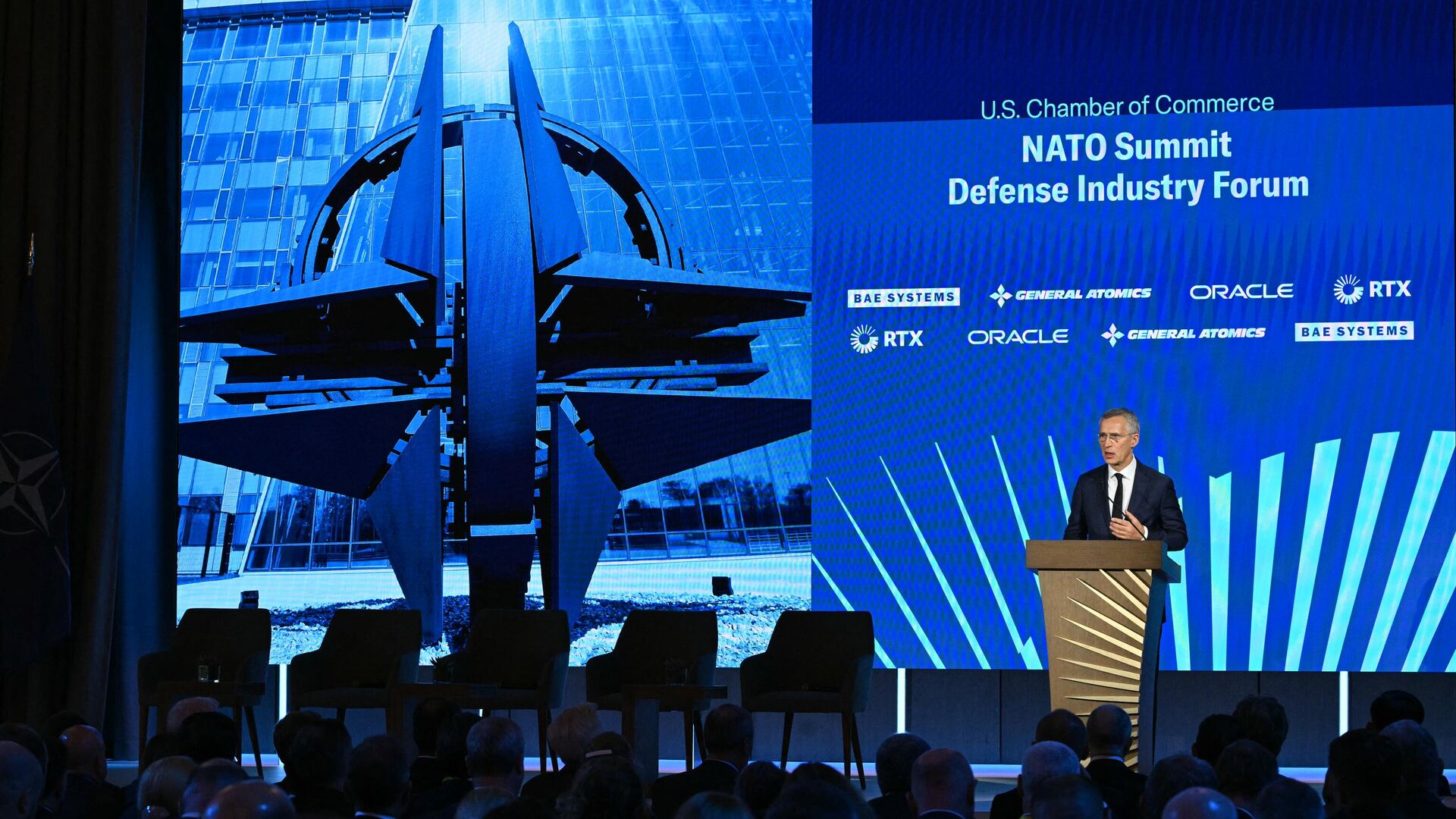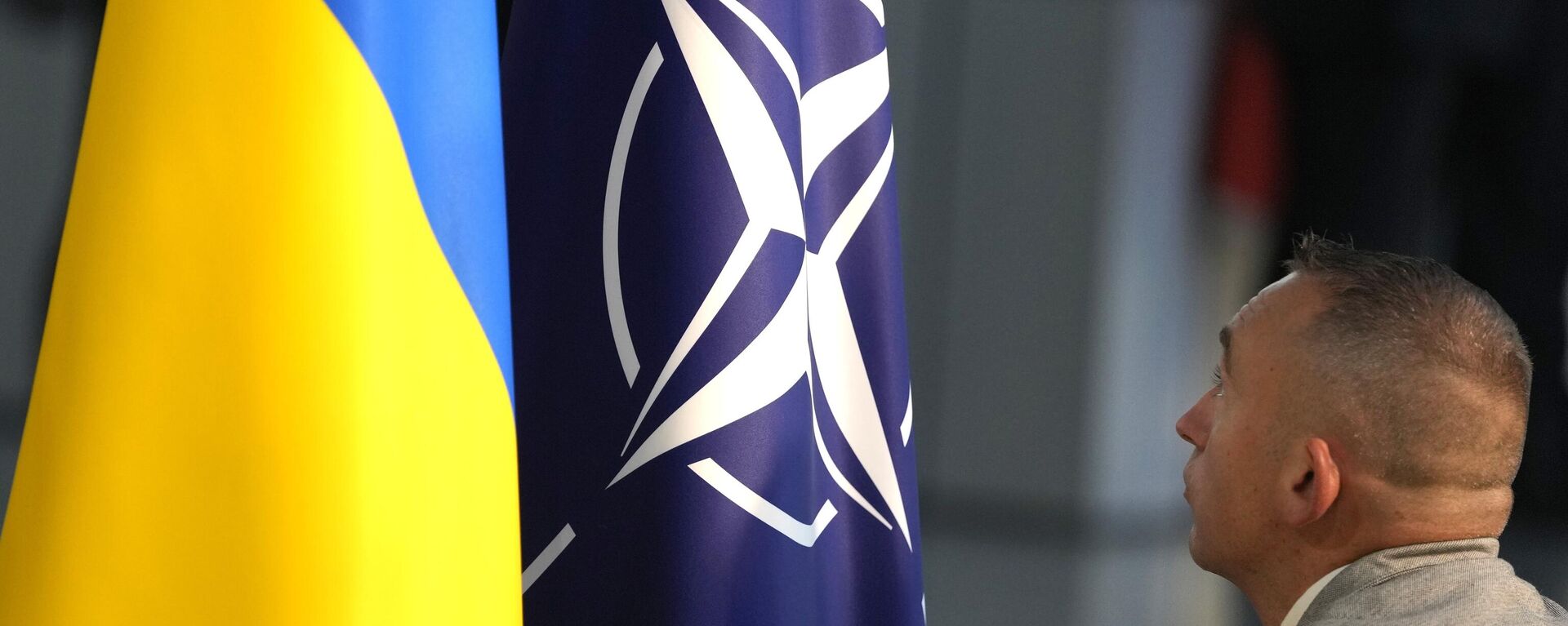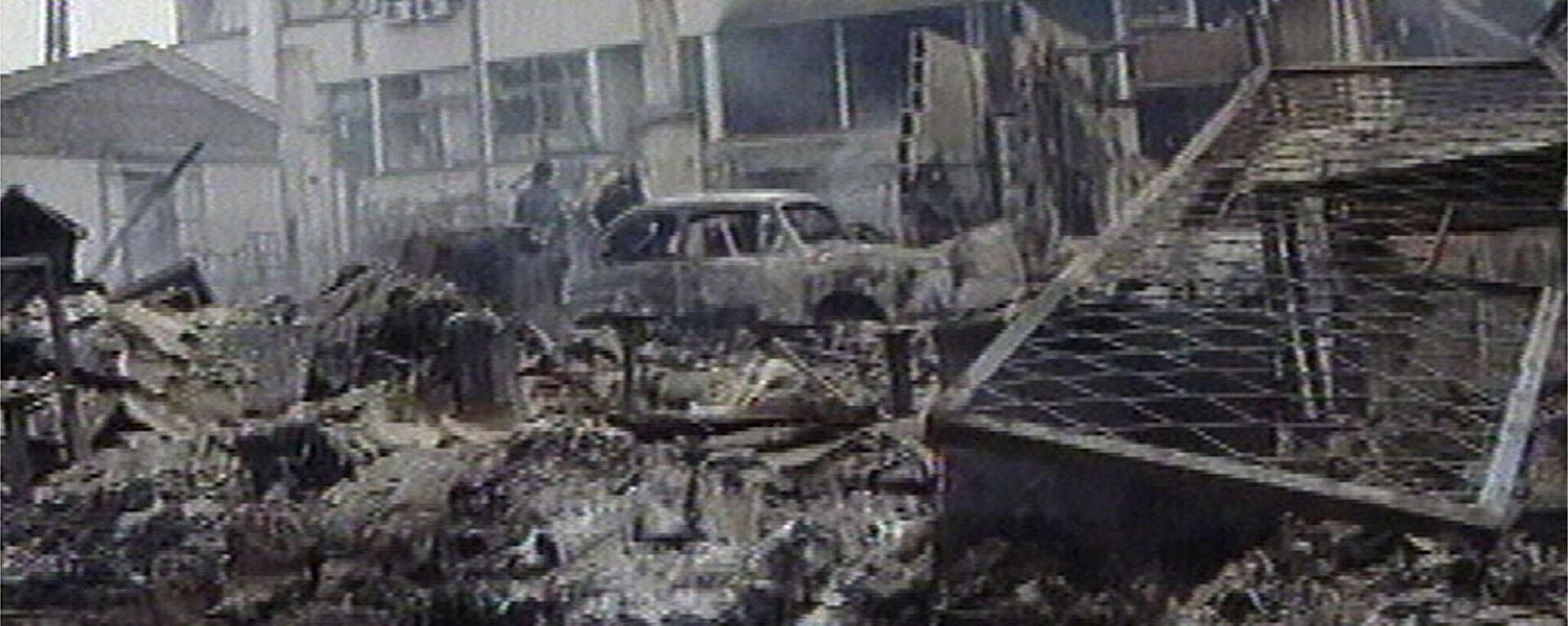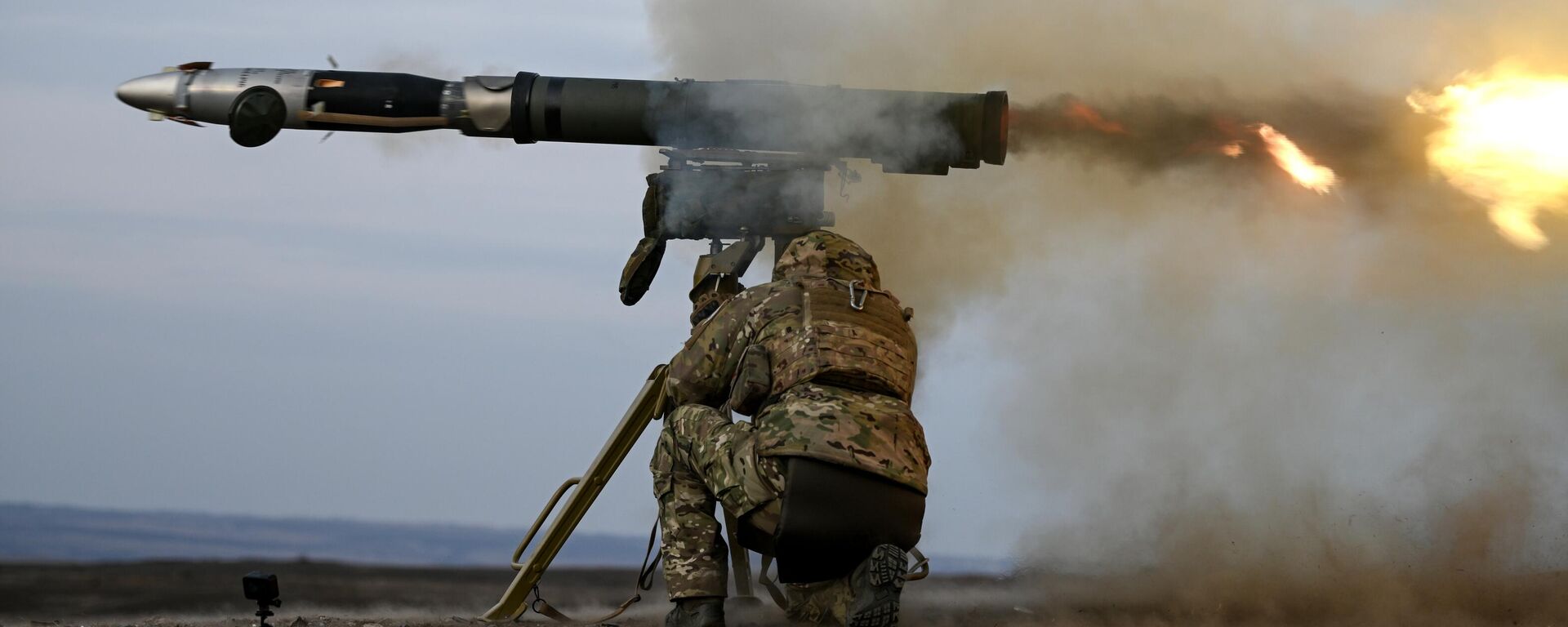Summit of Uncertainty: NATO Facing Crisis of Leadership, Nonpayments and Untenable Obligations

© AFP 2023 / DREW ANGERER
Subscribe
As NATO marks the 75th anniversary of its creation at a summit in Washington July 9-11, the alliance finds itself grappling with a slew of internal challenges, from political turbulence among allies to funding disputes and a system of arms contracts which benefits some members (guess which ones) far more than others.
Sputnik takes a closer look at some of the problems wracking the bloc:
Domestic Political Woes:
NATO’s main problem stems from a crisis of leadership which is no longer possible to hide. As last month’s presidential debate and the D-Day commemoration ceremony in Normandy, France amply demonstrated, US President Joe Biden appears to be in no condition to make critical policy decisions, or even enjoy control of his basic bodily functions and general demeanor.
Concerns over the president’s health and mental aptitude have become the central focus of virtually all English-language mainstream media coverage of the NATO anniversary festivities, with questions swirling around whether Biden will once again embarrass himself, and the United States, on the world stage via a major gaffe or awkward performance.
Across the pond, major allies are facing political and economic problems of their own, and of a scale and prevalence unprecedented since the alliance’s founding:
France has been plunged into a political crisis in the wake of President Macron’s June decision to call snap parliamentary elections, which have produced a hung parliament divided between the left, right and Macron’s centrists.
In the UK, Prime Minister Rishi Sunak was voted out after just a year-and-a-half in office in a snap vote last week, replaced by Labour Party leader Keir Starmer.
In central Europe, erstwhile EU economic powerhouse Germany is facing its own internal political turmoil as the shaky coalition government of Chancellor Olaf Scholz continues to struggle to find a consensus on foreign and defense policy after an embarrassing defeat (and possible preview of next year’s federal elections) in the June 9 elections to the European Parliament.
Spending Disparities:
A decade after pledging to increase alliance defense spending commitments to at least 2 percent of GDP, over a quarter of the bloc's members continue to lag behind, failing, sometimes woefully, to meet the spending threshold, and thus undermining alliance attempts to whip up hysteria around the so-called Russian "threat".
Canada, Spain and Belgium are among the biggest laggards, with Ottawa – habitually one of the loudest voices in the alliance when it comes to talk about “supporting Ukraine” and “defending NATO” against threats, spending just 1.4% of GDP on defense in 2023 and promising to reach 1.7% only by 2030 (the Parliamentary Budget Office says the actual figure will be only 1.42 percent).
Together with Belgium (Brussels promises to reach 2% only by 2035), Canada also fails to spend 20% or more of its defense budget on new equipment, as required, leaving much of its stocks in a woeful condition, undermining collective operational readiness. That may become a problem if the alliance decides to launch a war of aggression against another small country anytime soon.
As for Germany, its military spending still makes up only 1.5% of the country's GDP, and is expected to increase only by €1.2bn to €53.2bn in 2025 - far from the increase desired by NATO's top brass.
Dizzying Profits for US MIC at Allies’ Expense:
Allies’ hesitation to spend more on defense is perhaps understandable, given the lopsided ‘beneficiaries’ of the increased outlays. Last month, outgoing NATO Secretary-General Jens Stoltenberg said he expects overall military spending within the alliance to grow by 18% in 2024, marking the largest increase in spending in decades.
But the spending bonanza is largely driven by the United States, whose military-industrial complex enjoys the lion’s share of the profits, as upwards of two-thirds of the funds laid out for defense-related purchases are directed towards orders for defense companies based in the US. Increases in defense spending is therefore seen as a boon to an otherwise ailing US economy, even if it comes at the cost of even greater fiscal pain for European NATO members.
As NATO marks its 75th anniversary, these and other issues (not least of which is the danger of a direct, hot war with Russia caused by the alliance's aggressive behavior and rhetoric) will undoubtedly continue to fissure, bubble and boil, posing significant challenges to the alliance's cohesion and effectiveness. Balancing the demands of increased spending with pressing domestic issues facing most of the bloc's countries may become a bridge too far for the alliance to handle in the coming years.






